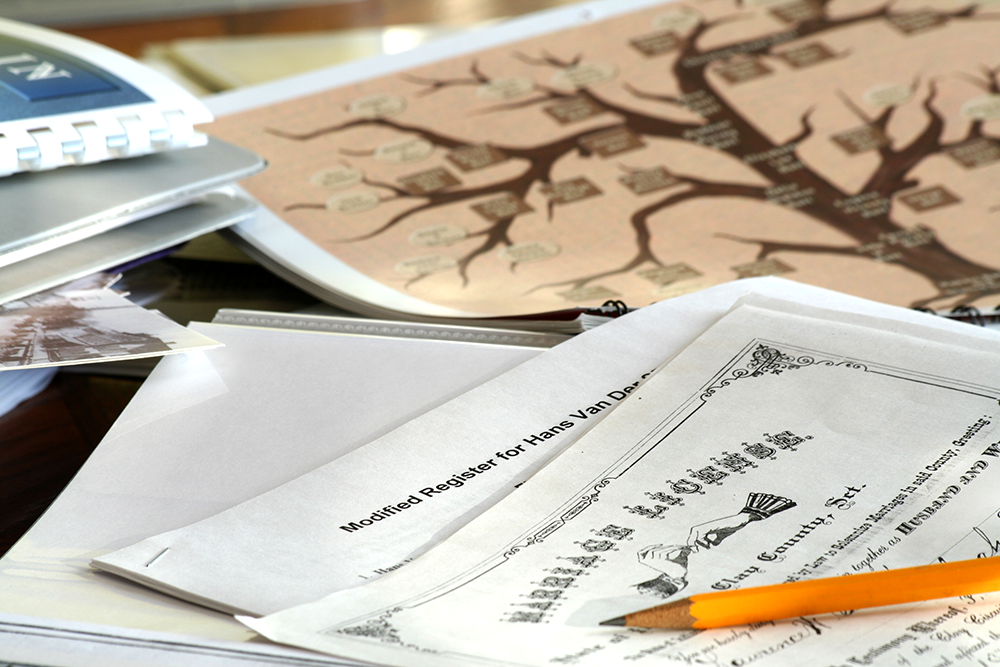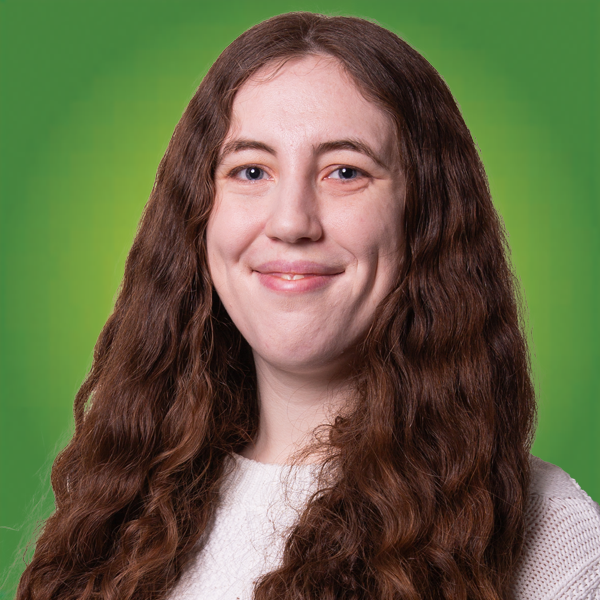Genealogy research: Do you have the right person?
We are fortunate to have online resources like Ancestry and Family Search available, as the internet is a fantastic way to share knowledge. However, people can make mistakes and give us inaccurate information, which can make research confusing and frustrating. Our Topeka Room staff members are here to help you prevent and correct errors in family research.
Evaluate the evidence
 It’s important to make sure the sources you are using are accurate and reliable. A good way to be more confident in your research is to cross-reference as many sources as possible. You should also ask yourself if you see any inconsistencies in your sources and if they can be explained. Consider the type of record you’re viewing. For example, a birth certificate may be a more reliable source for a birth date than a draft card, which may have belonged to someone exaggerating their age to enlist.
It’s important to make sure the sources you are using are accurate and reliable. A good way to be more confident in your research is to cross-reference as many sources as possible. You should also ask yourself if you see any inconsistencies in your sources and if they can be explained. Consider the type of record you’re viewing. For example, a birth certificate may be a more reliable source for a birth date than a draft card, which may have belonged to someone exaggerating their age to enlist.
Take care with names
Be careful with the names of parents and children. Keep track of juniors and seniors, as it’s easy to confuse people with the same names. A relative of mine on FamilySearch had been falsely connected with children he did not have. His father sharing his name likely contributed to some of the confusion.
Somebody’s name is only one part of their identity. Comb through as many records as you can and consider all the biographical information. Do the ages, birthplaces, and names of spouses and parents match?
Editing information on Ancestry & FamilySearch
 If you catch an error in a database, you can edit or remove it. On Ancestry you can add or update information or simply report a problem. On FamilySearch you can make edits on your family tree. For more information about these specific databases, view these pages on Ancestry and FamilySearch.
If you catch an error in a database, you can edit or remove it. On Ancestry you can add or update information or simply report a problem. On FamilySearch you can make edits on your family tree. For more information about these specific databases, view these pages on Ancestry and FamilySearch.
Database volunteers can help
When I researched my family tree on FamilySearch I grew interested in the life of my fourth great-grandfather who immigrated from Ireland to Iowa in the 1830s. When I looked at his profile I saw comments calling it a “jumbled mess” with “several different families mixed together.” Fortunately for me this mess had already been cleaned up by a distant relative of mine who I contacted. She corrected these faulty records as part of her volunteer work with FamilySearch. Genealogy database volunteers help with the record-keeping process and FamilySearch lets you connect with trained volunteers for research help.
Connect with family members who share interest in genealogy
 Researching your family history is a fantastic way to grow closer to your family members through learning more about a close relative’s life or discovering a distant relative. FamilySearch and Ancestry both have messaging systems that let you connect with relatives who are active on the site. Genealogy research doesn’t need to be a lonely activity. Message your relatives who are active in genealogy databases or organize time together to compare notes.
Researching your family history is a fantastic way to grow closer to your family members through learning more about a close relative’s life or discovering a distant relative. FamilySearch and Ancestry both have messaging systems that let you connect with relatives who are active on the site. Genealogy research doesn’t need to be a lonely activity. Message your relatives who are active in genealogy databases or organize time together to compare notes.
Use your resources
Genealogy databases expect individual researchers to run into problems and have questions. There are online forums, articles and video tutorials made by genealogists for researchers to seek help. Societies and clubs like the Topeka Genealogical Society are an opportunity to speak with amateur and professional genealogists. The library’s Topeka Room also has a collection of books on genealogy and our staff can assist you with research questions.















